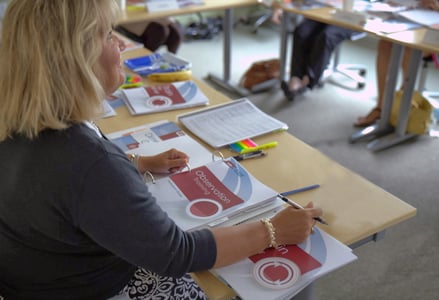
It happens to every trainer, right? Your participants have finished coding a video and during your discussion you say, “The master code for [insert dimension here] is [insert # here]. How many of you were within 1?” You see a lot of heads nodding, but you also see someone who looks incredulous. You know that the best practice is to have participants who are reliable share their evidence first. And generally, the evidence that they share helps the participant who is not reliable understand why they were off.
However, there are those times when someone is passionate about the code – the unreliable code that it. They are certain that they are right and the master coding team is wrong. I once had a participant ask me if the people who coded the videos were reliable. I kept my smart aleck retort to myself and said, “Yes, our master coders have a great deal of expertise in the CLASS.” The individual was still not swayed, so I asked if they could see a score of 3 instead of the 2 they assigned. The master code was a 4 and that would make them reliable. This person crossed her arms across her chest and said, “We’ll just have to agree to disagree.” I did not try to dissuade her in the moment because we needed to move on and I could tell that she was not amenable to changing her thinking, so I made a mental note to check in with her at the next break.
You may find that you encounter a participant who wants to argue the code even after you’ve thoroughly discussed and explained it. It’s not wise to get into an argument about the code, so don’t waste your energy trying help them understand the code when they have made up their minds. They may want to argue that the master code is wrong, but we know that it isn’t. When participants are convinced that their unreliable code in accurate, don’t waste your breath trying to change their minds in the moment. Instead, use this interaction as an opportunity to help them deepen their understanding of CLASS content and the coding process and not on fighting about the codes.

